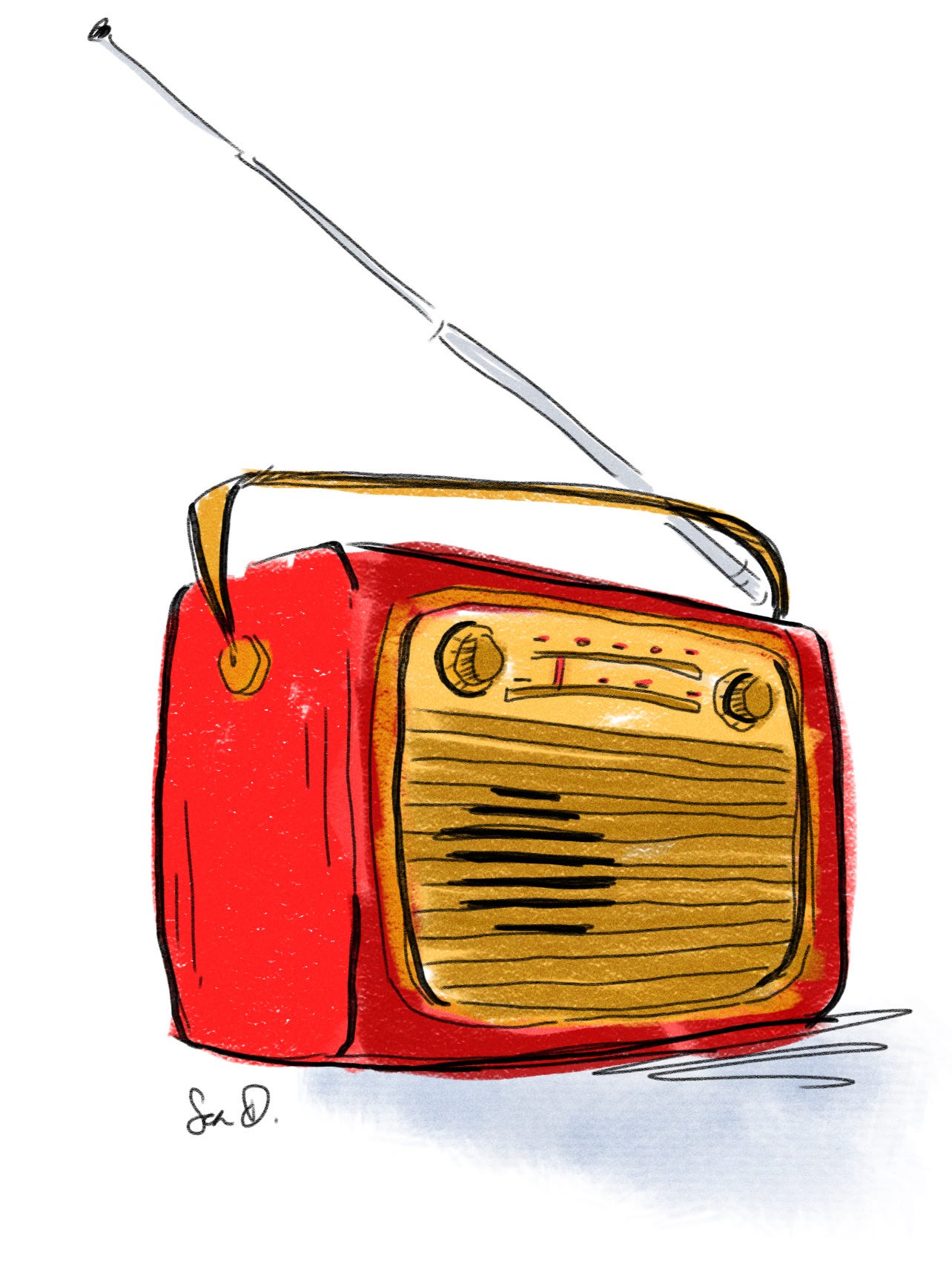As a boy, my father used to listen to the Grand Ole Opry and drink beer in his garage.
We were Southern Baptists, and Baptists do not drink beer inside, only in the garage. Occasionally they smoke out there, too. But only when your mother is out of town visiting her aunt Cynthia.
Out in that garage I listened to 650 AM, Nashville. I heard Loretta Lynn, George Jones, Sarah Cannon, and all the greats.
If my mother happened to be home, and if she came into the garage unexpectedly, my father would quickly pass me his beer and cigarette and say to my mother, “Look what I caught your son doing.”
Foremostly, I was a kid with musical proclivity. I wouldn’t go so far as to call it “musical talent.” I was, however, allowed to sing and play piano in church.
Namely, because it was only a 27-member church, and the only other in our congregation who was called upon to sing offertory hymns was Mrs. Wannamaker, who my father said had a voice like a Buick with a bad starter.
When I was 11 my father died, whereupon I began listening to the Opry faithfully. Every Saturday. I suppose I was trying to keep him alive, somehow.
Eventually, I grew up. Eventually, I parted ways with modern country music because I preferred a style of music that didn’t involve thong underwear and three-thousand-dollar boots. I preferred my father’s style of music. Blue collar music. Tunes sung by folks who knew what it meant to work for a living. Just like my old man.
After a long, rocky childhood, and a string of persistent failures, I fell into novel writing when I was in my 30s. I enjoyed it. I was soon raking in hundreds of dollars per year.
Even so, I have been fortunate enough to produce a handful of novels, and I feel grateful for this.
No, they are not high-brow novels, but I’m still proud of them. Sort of.
Not to toot my own horn, but one time my work caused a well-known literary critic to generously remark, “I want the last eight hours of my life back. This guy sucks.”
My writing led to speaking gigs. Which led to my performances where, before live audiences, I would perform a one-man trainwreck. My one-man show has taken me around the nation as a stand-up storyteller and song-singer.
I have delivered my one-man disaster in nearly every state in the Union except North Dakota, of whose existence I am starting to doubt.
It’s not a glamorous life. Mostly, I have spoken and told my corny jokes in VFW's, nursing homes, or at the grand openings of various feed and seeds.
But at this age, I can honestly attribute my entire career to those evenings listening to the Opry with my father in the garage.
And so it was, on one summer afternoon, a few years ago, I sat down to write a novel. The premise was simple:
I wanted my book to be about an underprivileged kid, a screw-up, a suicide survivor, and a musician. I wanted this kid, my main character, to have no confidence. Just like me.
I wanted this character to feel lost and unloved. And in the end, I wanted this kid to be called up to the Grand Ole Opry.
I started writing this book, but told nobody about this manuscript. Not even my wife. I worked on these sentences every day. Weeks turned into months. Months turned into years. Nobody knew what my book was about. Not even me.
While writing this book, which was still a tightly kept secret, one day, out of a clear blue sky, my wife got a phone call. My wife nodded a lot during this call. She said a lot of uh-huhs. Then she hung up the phone. There were tears in her eyes.
“Do you know who that was on the phone?” she asked.
“The IRS?” I said.
“That was the Grand Ole Opry,” she explained. “They want you on their show.”
I nearly collapsed. The novel I began writing many years ago had somehow, through a grand mystery of the universe, come true. To me.
Later, when my editor, Laura Wheeler, asked what I wanted to title this book, I told her I didn’t have a title. She said, “Why don’t we call it ‘Kinfolk’?”
Months thereafter, Laura showed up to my Opry performance. She hugged me after the show and we both cried into each other’s shoulders. “You did it,” she said.
“No,” I said. “We did it.”
Here’s what the dictionary says about “kinfolk.”
KINFOLK: (In anthropological or formal use) a person's blood relations, regarded collectively, or singularly in the American dialect. A member of one’s own family. One's own flesh and blood, a blood relative. A loved one who sometimes drinks beer in the garage.
I dedicate this novel to you, Daddy.






Congratulations. Well done, dreams can become reality. You deserve it and we are all proud of you. Your Daddy is cheering in Heaven.
Congratulations on both The Opry and Kinfolk. FWIW, we've seen your one-man train wreck. We still smile about it. You made everyone in the Springer Theater feel like - well - kinfolk. Well done.